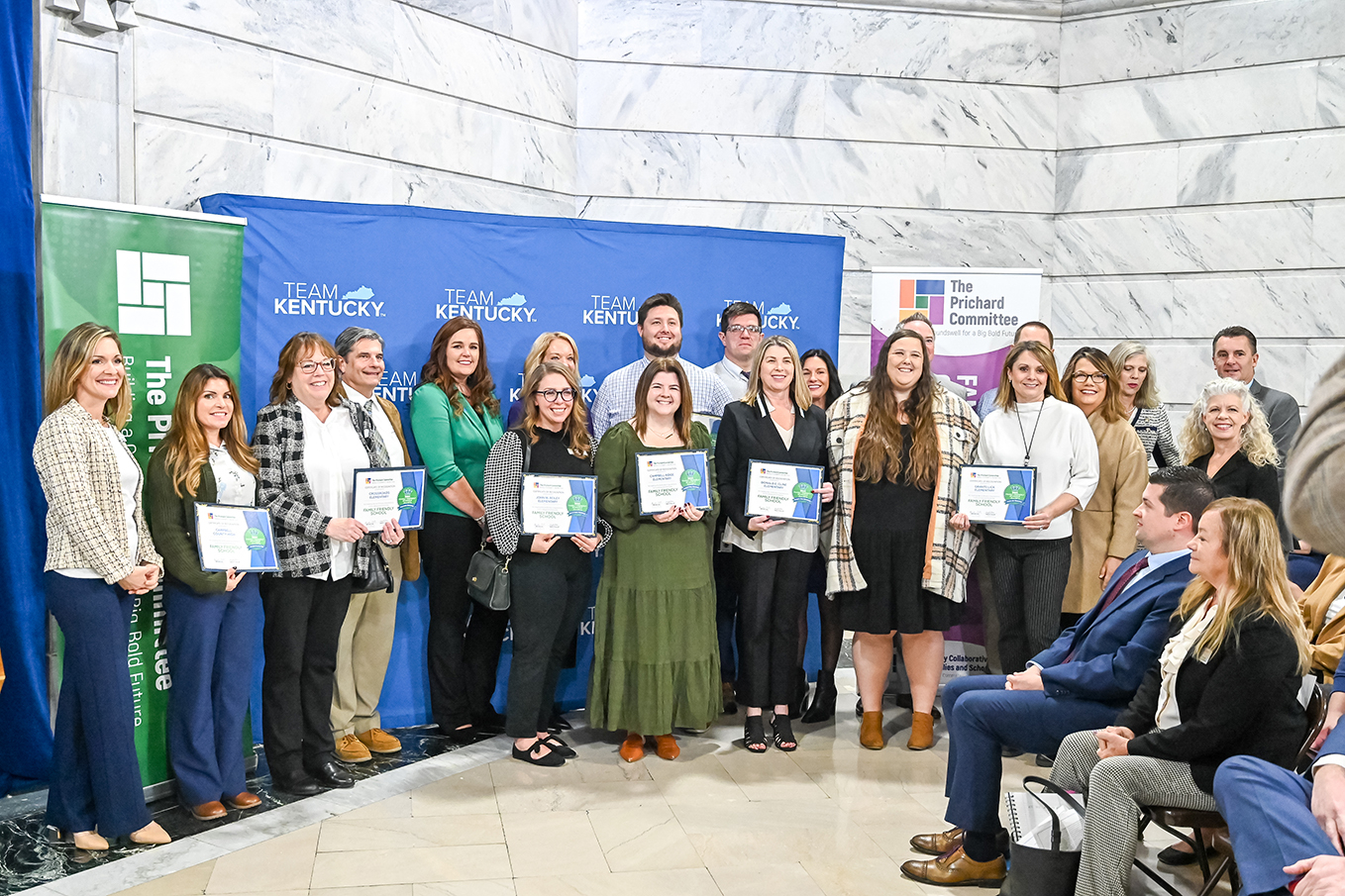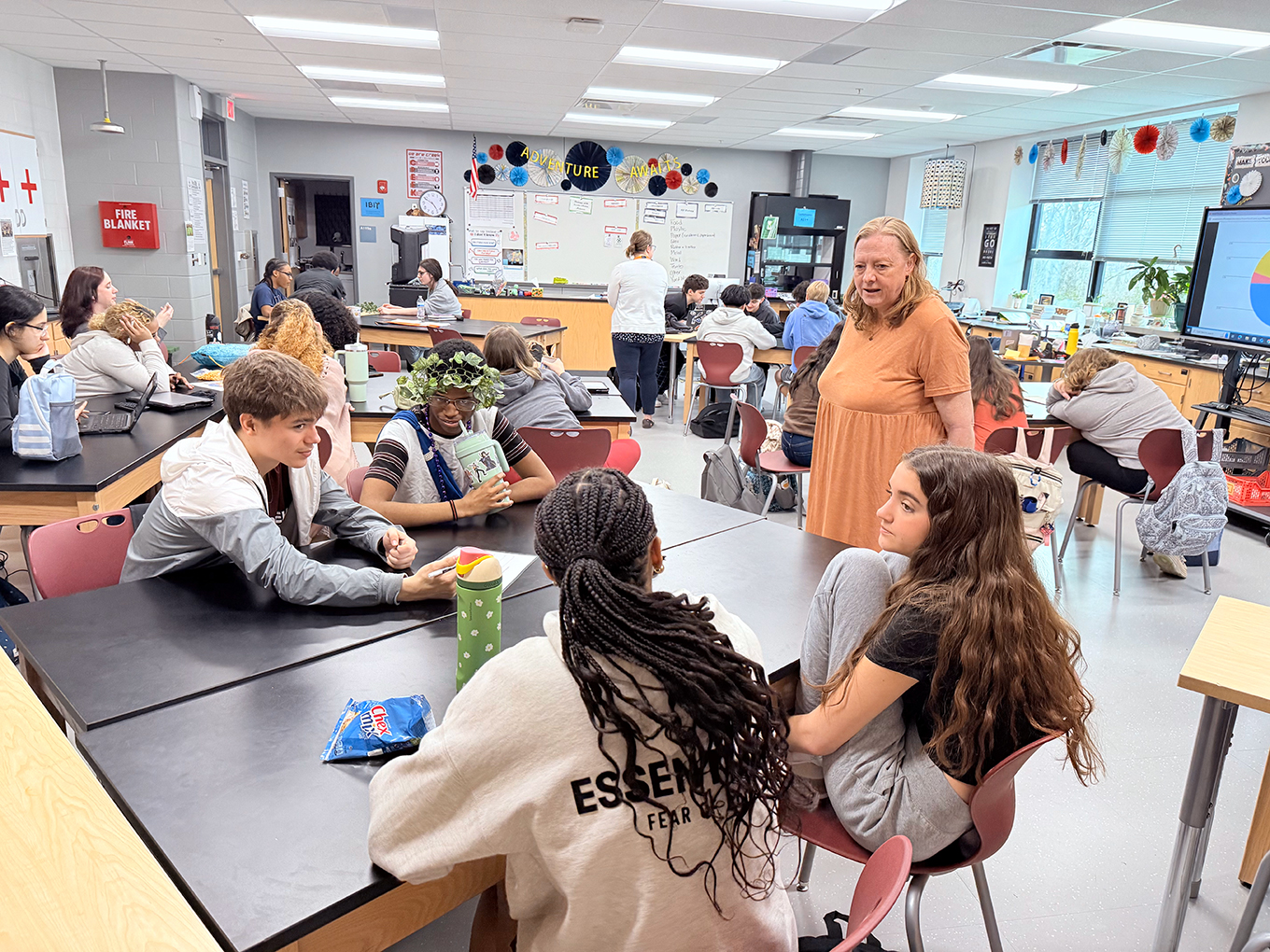
Ashley Lamb-Sinclair
By Ashley Lamb-Sinclair
ashley.lamb-sinclair@education.ky.gov
If you had asked me one chilly, overcast Friday morning how I would have liked to spend the day, you would not have heard, “Oh, I can’t wait to scrub down pumpkins with vinegar alongside 20 15-year-olds.”
On this particular Friday, I took students from a course I designed called Connect to Fox Hollow Farm in Crestwood because my sole goal was to reconnect students who had lost interest in school to learning. I wanted them to become true learners. I wanted them to be curious. And these were the kinds of kids who crave new ways of approaching learning.
Before the trip, we had not had a good week together. I was frustrated with them and they probably were more frustrated with me. I didn’t think their work was living up to their potential. I didn’t think they were really trying and I took it personally. So much so, that on the morning of the field trip, I said to my husband, “I don’t even want to go on this field trip because I don’t think they deserve it. They’re being so lazy right now.”
So I dragged myself to school, bad attitude and all, and hopped on a bus headed to the farm. When we got off the bus, a couple of the farm workers asked the kids to scrub black mold off of these huge pumpkins that were piled into giant boxes around a field, using vinegar, water and old towels. I just prayed for a storm to come so we’d have an excuse to haul out of there, but the kids hopped off the bus like they were retirees trying to get a spot on “The Price is Right.”
They got right to work like old pros. They were so happy. Watching them, I couldn’t help but crawl out of my funk. I went around asking them if they’d rather be warm inside writing an essay (exactly where I wanted to be) or out there scrubbing pumpkin mold and hauling giant pumpkins around a deadened patch of land, and they all laughed at the stupidity of my question.
It hit me then: These kids are not lazy.
They were a lot of things at school – unmotivated, frustrated, bored – but out there in the cold, wet morning, they were anything but lazy. I was reminded of why I chose them to be in the class in the first place. I made them a promise of a new experience, but I had thrown that promise out the window the second they didn’t perform in school the way I thought they should. But why would they? I knew who they were from the very beginning; I was the one pretending.
As Americans, and especially as teachers, we are trained to think about education in a certain way. But more and more people are beginning to recognize that school is not structured in the way that most of our brains work. I became a teacher – I am the definition of an academic – and school wasn’t always great even for me. If we are honest with ourselves, we can all admit that sometimes the way we learn in school and the way we choose to learn outside of school are not only different, but polar opposites.
However, I am a teacher, and I believe inherently that there is nothing in the world more valuable than learning. I also believe that public education has the power to transform a person and a society. But I have to ask myself some hard questions sometimes about why I do what I do in the classroom and why I expect certain things from my kids.
Here is the bottom line: I want success and a passion for lifelong learning for every kid who walks into my classroom. Of those 20 kids who were in my Connect class, I want the kid who wants to be a vet to write a killer essay and get that spot into vet school of her dreams. I want the kid who wants to be a hair stylist to be the most requested stylist in the salon because she knows how to tell good stories and persuade clients to try that hairstyle that she knows will make them look their best. I want the kid who wants to be an entrepreneur to refuse to sign the shoddy contract sent to him because he knows to read carefully, and he knows not only what the words say, but also what they really mean for him and his business.
I want these kids to translate the motivation they had for scrubbing and hauling pumpkins to a motivation for living the best life they can. And that sometimes means working within the confines we’ve been given – navigating the system as it stands. I had to teach them how to walk that line.
So now that we are at the dawn of a new era with the federal Every Student Succeeds Act; we have an opportunity to redefine student success. For me, that means balancing authentic learning experiences for my students with rigorous standards, and providing opportunities in every school for every student to feel as successful writing an essay as he does working on a farm. We can begin opening dialogues for redefining student success in Kentucky, and now is the time to do it. If you want to join that conversation, attend one of Education Commissioner Stephen Pruitt’s Town Hall meetings around the state.
We owe it to Kentucky’s kids to create schools and systems that develop students into their best selves, and we can only do that together.
Ashley Lamb-Sinclair is the 2016 Kentucky Teacher of the Year, a National Board certified teacher and is in her 10th year of teaching. She has taught in Fayette and Jefferson counties and now teaches English and creative writing at North Oldham High School (Oldham County). She currently is on sabbatical from her classroom and working at the Kentucky Department of Education.




Leave A Comment